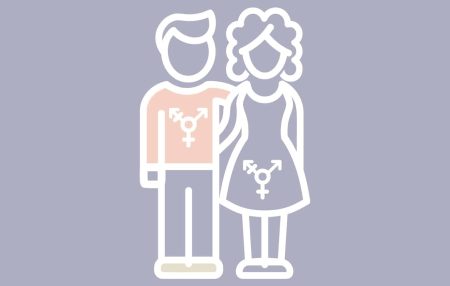17 January 2022
Over the last two decades we have seen growing uptake of egg and sperm donation. Advances in reproductive technology, evolving social attitudes, changes in the law and the internet have expanded our reproductive options and approaches to family building. As a result, egg and sperm donation is now used in many different forms including later-life family building, surrogacy, known donation, inter-family donation, identity-release donation, co-parenting arrangements and in the creation of growing numbers of solo, same-sex, transgender and blended families.
Family Building and Identity Issues
Egg and sperm donation raises a number of identity issues for parents, children, families and donors. Should I tell my child they are donor conceived? What do I call my child’s known donor? What happens if a donor conceived individual gets sick and needs to trace important medical and genetic history from their donor? What options are there as a donor conceived person to know more about their donor or navigate multiple genetic half siblings? What are the options and implications for a donor if they are contacted by donor conceived offspring who wants to get to know them?
Egg and sperm donation shapes the identity of individuals and families and it has an enduring legacy that lasts beyond a donor conceived individual attaining the age of 18. Egg and sperm donation raises sensitive and deeply personal issues about biological origins, personality traits and characteristics, ethnicity, genetic relatives and nuclear family relationships that sit at the heart of family life. Moreover, attitudes to donation can change over time and can be influenced by evolving legal frameworks governing anonymity, access to fertility treatment and surrogacy as well as technological advances like direct-to-consumer DNA testing. As such, donor conception through egg and sperm donation requires careful thought and ongoing management.
Anonymity
The rapid proliferation of direct-to-consumer DNA testing and internet usage has undermined anonymous egg and sperm donation to a point where donor anonymity can no longer be guaranteed. More than 40 million people worldwide have now undertaken a direct-to-consumer DNA test and ever expanding genetic genealogy databases make it easier than ever before to trace egg and sperm donors and genetic relatives.
Even if a donor has not themselves undergone a DNA test, they can increasingly be tracked down through other relatives who have undertaken a direct-to-consumer DNA test and the involvement of professional genealogists. This can raise challenging emotional, legal and practical issues for donors, their families as well as donor conceived individuals depending upon the circumstances of the donation and conception and applicable legal frameworks governing anonymity and identity-release donation.
Aside from this, donor anonymity was lifted in the UK in 2005 and replaced by an identity-release donation framework. The first cohort of donor conceived individuals under the UK identity-release donation regime will reach age 18 in 2023 and be able to legally access identifying information about their donor.
Egg and Sperm Donor Disputes
Egg and sperm donation can create many challenging legal issues for parents, children and donors. In particular, privately arranged sperm donation, known donation with a friend or acquaintance, straight surrogacy arrangements and inter-family donation can provide positive pathways to parenthood, but they can also create complex legal issues and difficult situations in practice. Mismatched expectations, gaps in legal understanding, lack of ground rules, poor communication and changes in personal situations and relationships can create unwanted tension and disputes about legal parentage, birth certificates, parental decision making, financial arrangements and a child’s upbringing. This makes it important to get expert legal advice and make informed decisions from the outset.
Specialist fertility and family law advice helps navigate many complex legal and wider issues associated with fertility treatment, donor conception, surrogacy, known donation, inter-family donation, co-parenting arrangements and complex personal situations. It can create a bespoke family building legal and practical action plan to understand options and make informed decisions about conception, family creation, biological identity and legacy as well as legally document arrangements in writing. As such, it helps effectively navigate many complex fertility and family law issues and disputes, including:
- Options, implications and outcomes of building a family through domestic or overseas egg or sperm donation or following a complex personal situation.
- Preparation of a bespoke written Known Donor Agreement.
- Preparation of a written Co-Parenting Agreement.
- Legal parentage disputes with a donor, co-parent or surrogate.
- Legal parentage disputes with a UK fertility clinic following donor conception (e.g. problems and omissions with HFEA consent forms).
- Acquisition of legal parentage following a domestic or international surrogacy arrangement with egg or sperm donation.
- Care and upbringing of children following a dispute with a donor, co-parent or surrogate.




